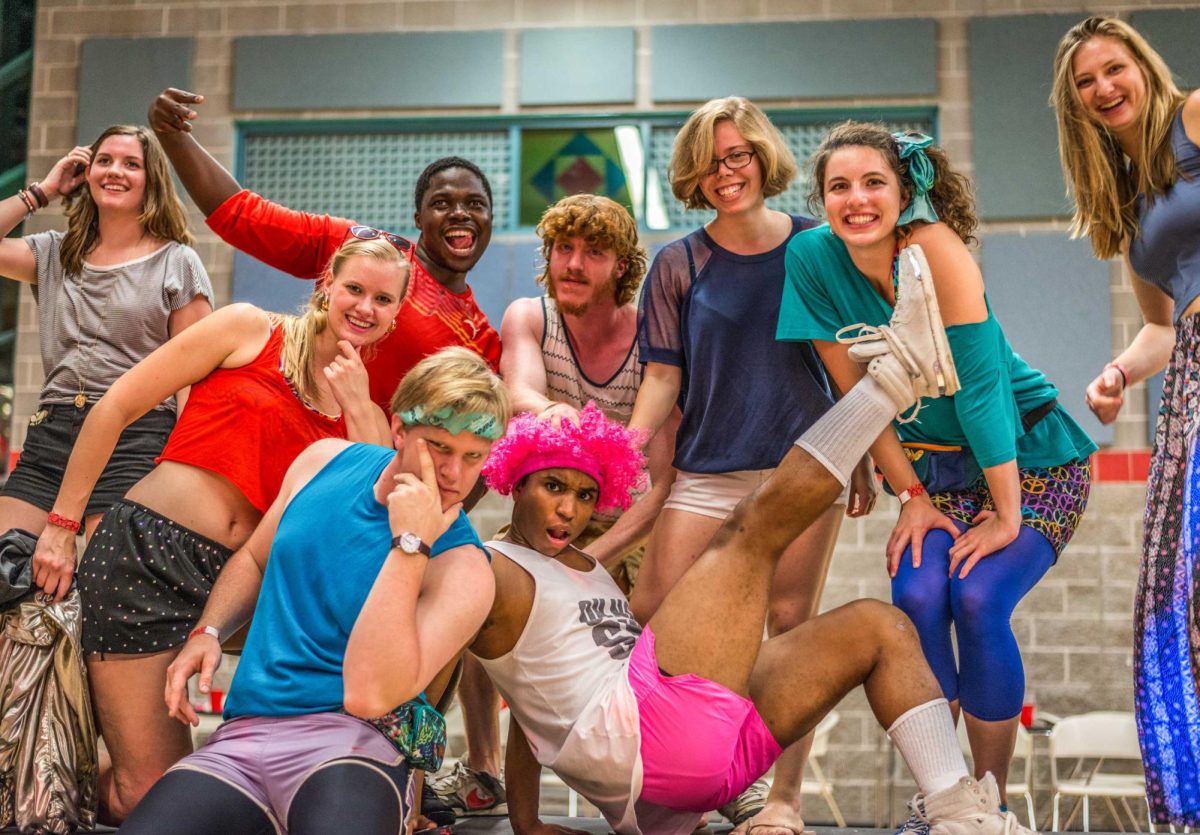Two strong legal minds, Sam Mulopulos ’14 and Joe Wlos ’15, represented Grinnell College for the first time in the Upper Midwest Regional for Undergraduate Moot Court on Friday and Saturday, Nov. 8 and 9 at Loras College in Dubuque, Iowa. Seeded first after the first day of the competition, the duo placed third overall, earning them a spot in Nationals, which will be held at the Sandra Day O’Connor College of Law at Arizona State University in January.
Many students may be familiar with mock trial, which simulates a court room jury trial. However, moot court simulates an appellate court—in this case, the Supreme Court. While moot court is an extracurricular activity prevalent in law schools, it has only recently become an opportunity for undergraduates. The American Collegiate Moot Court Association (ACMA) allows undergraduate students to explore constitutional issues by analyzing both sides of a case and presenting a strong cohesive oral argument that demonstrates knowledge of the case and the law.
According to Mulopulos, the cases are “fictionally constructed” by the ACMA. Along with the case, the ACMA provides the competitors with majority opinions of lower courts and selected court cases that they can draw from when devising their arguments. This year’s case dealt with the issues of privacy protection under the Fourth Amendment and habeas corpus, a legal principle that confronts the extent of presidential power. The competition involves oral arguments from two sides, the petitioner and respondent, as well as questions posed by judges to both sides who score competitors based on their arguments and responses. In this competition, the petitioning side argued against warrantless tracking by the government while the respondent defended the government’s powers. Wlos preferred representing the respondent because of the challenge it posed.
“I was basically standing up and saying that no one has a right to privacy. As a Grinnellian, that’s an argument that would be totally against what most people would think. It was a morally questionable position, but I found ways to back it up legally,” Wlos said.
Mulopulos, who leads Model United Nations at Grinnell, and Wlos, who was the Illinois state champion of impromptu speaking, have had previous experience with public speaking. However, both acknowledged the challenge of speaking under the scrutiny of a panel of judges.
“Every time you get in front of the judges, it can be very stressful … because it’s something you can’t prepare for—there’s always a degree of uncertainty on what they’re going to ask, but it keeps you on your toes and keeps things interesting,” Wlos said. “It’s not just a speech; it’s a conversation with the judges.”
Other than public speaking, Mulopulos and Wlos are also particularly interested in appellate law. Both are political science majors who were involved in Mentor Advanced Projects (MAP) that dealt with habeas corpus and presidential power. This past summer, Wlos worked with Wayne Moyer, Political Science, on his MAP, and his research will be published in the University of Pennsylvania Undergraduate Law Journal. Mulopulos and Wlos believe that these experiences were what allowed them to perform well in the competition, despite the difficulties they faced preparing for it.
The team was confronted with a major time constraint to practice their argument and the lack of coaching assistance. According to Mulopulos, the two practiced for a week and a half before Regionals, but, because Wlos is currently off campus, much of these practices were orchestrated over the phone or through Skype. Additionally, since Mulopulos and Wlos did not have a coach going into Regionals, they relied on videos of past competitions to learn the proper decorum.
Both Mulopulos and Wlos agreed that the most difficult aspect of the entire experience was the intense questions posed by the judges.
“They just interrupt you mid-speech and tear apart your argument. It’s judged not just on your argument and the jurisprudence of it, but your demeanor [as well],” Mulopulos explained.
Although the team entered Regionals as underdogs, they plan on resuming practices soon to continue improving their speech and debate skills.
“We went into the competition without any real goals or expectations. It’ll be the same with Nationals. It’s a totally new experience. I’m very happy just going and gaining the experience, but of course, I hope that we can place,” Wlos said.
Beyond their goal of placing, the mere experience of competing in Moot Court has helped them discover possible future careers.
“Moot Court has really given me an outlook to [Constitutional Law]. This really is a job people have: arguing in front of the Supreme Court. Obviously, it’s really rare, like the navy seals of the law profession, but I think it’s something I want to do,” Mulopulos said.



















































